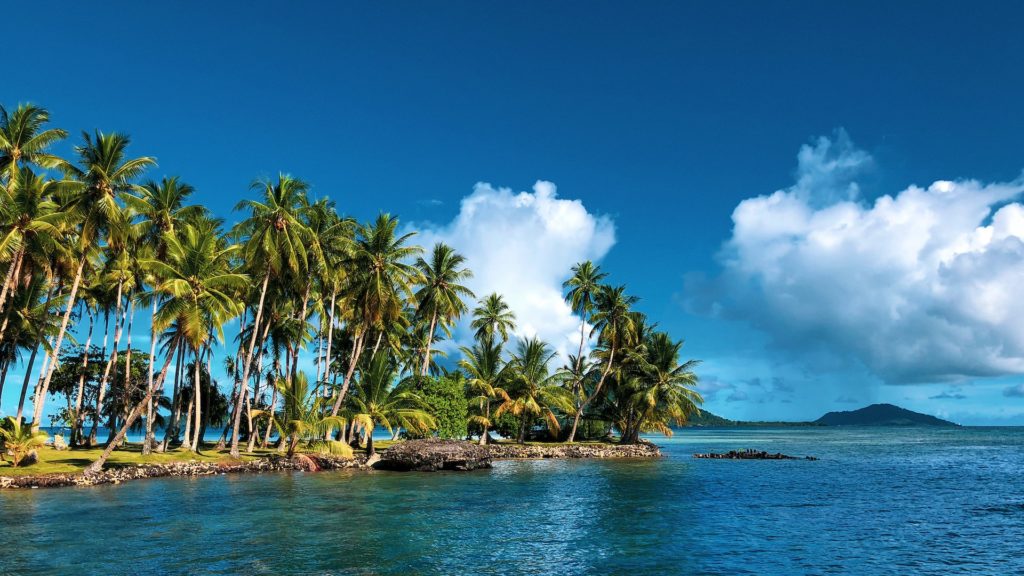Indigenous peoples of the ethnographic group of Pacific Islands known as Melanesia have Melanesian cultures, beliefs, and customs. The islands are arranged in an arc from northwest to southeast, starting with New Guinea (of which the eastern half is Papua New Guinea, an independent nation, and the western half is called Papua and is part of Indonesia). The arc then passes through the Solomon Islands, Vanuatu (previously known as the New Hebrides), New Caledonia, Fiji, and numerous smaller islands. Along the Equator, Melanesia is bordered by the Tropic of Capricorn and Australia. Due to its inhabitants’ dark skin, Melanesia got its name from the Greek words melanos, which means “black”, and nesoi, which means “islands”. Roughly 10 million people were living in Melanesia at the beginning of the twenty-first century. All over Melanesia, there are various economies. For instance, Fiji experienced a period of rapid economic growth in the 1970s and has a wealth of natural resources. The inhabitants of Western New Guinea subsist on fishing, hunting, and the cultivation of a few specific foods. Similar to PNG and Fiji, the Solomon Islands is less developed, with the majority of residents relying on farming and fishing to make ends meet.

Melanesia work permits
Research on each nation is essential before looking for a job in Melanesia or deciding whether to relocate there to live and work. The Pacific Islands may have different requirements for visas, so it is important to check the rules with your home embassy to make sure you understand them completely.
Finding a job in Melanesia
Job searching in Melanesia is a task that needs to be treated seriously and rationally approached. To work in Melanesia and stay for a longer period than a tourist visa would permit, expats must find employment, housing, and insurance. It’s not the simplest decision to make, and many expats will undoubtedly find it difficult. However, living and working in Melanesia can be a challenging and demanding experience if research is done and a position with the proper benefits, healthcare, and pay is offered.
National or regional newspapers, like the Fiji Times and The National in Papa New Guinea, as well as international job-hunting websites, are the best resources for Melanesia job seekers.
Fijis resources
Fiji has one of the more developed economies despite still having a sizable subsistence sector. It is endowed with forest, mineral, and fish resources. The 1960s and 1970s saw rapid growth for Fiji, but the early 1980s saw stagnation. About 25% of the known nickel resources in the world are found in New Caledonia, and most of it is extracted from open-pit mines. Only a small portion of the land can be used for farming, and about 20% of imports are food-related. The French government’s substantial financial assistance as well as tourism are essential for the economy’s health.
Natural resources in Papua New Guinea
Natural resources are abundant in Papua New Guinea, but their development has been hampered by the country’s difficult geography, high infrastructure development costs, severe law and order issues, and issues with land titles. For 85% of people, agriculture is their primary source of income. Gold, copper, and oil are just a few mineral deposits contributing 72% of export revenue. Western New Guinea’s economy is underdeveloped. The people hunt, fish, and grow a variety of crops, including yams, corn, manioc, bananas, and sago. The Maluku island of Aru’s main source of income is its pearl farming industry.
More than 75% of the labor force in the less-developed country of the Solomon Islands works in subsistence agriculture and fishing. The main source of income in the Torres Strait Islands is subsistence horticulture and fishing, particularly for prawns. Small-scale agriculture is the cornerstone of the Vanuatuan economy, supporting 65 percent of the country’s people. Other important industries include tourism, offshore financial services, and fishing. There are no known petroleum reserves in the nation. Despite disparities in the availability and cost of new technology, Melanesian countries are utilizing it well. The need for fast internet is expanding. Going online was advantageous for businesses. Participants held that infrastructure development needed to be a top priority for Melanesian countries if people were to benefit from cutting-edge technology. Although the word “innovation” is well-liked, the area needed more ways to finance young people’s ideas. Crowdfunding initiatives are thought to be more in line with Melanesian culture.
Continuous development in Melanesia
In terms of sustainable development, Melanesia is likely in front of many other nations due to its wealth of natural resources and cultural diversity. More cultural and economic cooperation among the nations in the area would be advantageous, as well as joint efforts to develop trade-friendly markets. The market offers young people a three-day venue to sell their goods, with 250 young people as its target audience in each phase. Song and dance competitions are sponsored by businesses to increase their visibility in the market. This forum has generated eight prosperous businesses, including ones in the fields of catering, t-shirt printing, and jewelry. There is a chance that other Melanesian nations will use this model.







